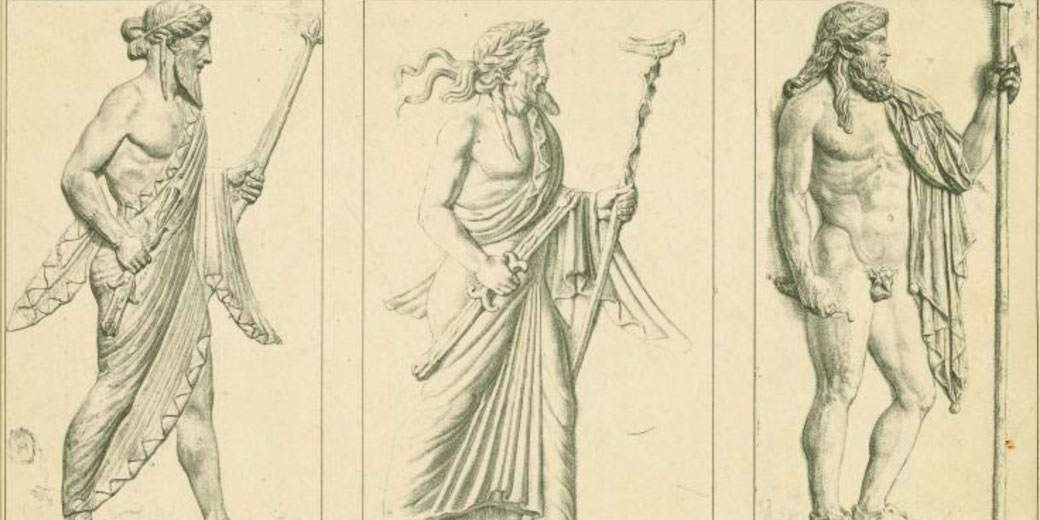The mysterious message Alexander the Great received when he visited the Siwa Oracle

In the desolate deserts of Egypt, the greatest conqueror in history undertook a life-threatening journey to seek the wisdom of the distant ancient Oracle at Siwa.
Driven by a quest for divine validation of his kingship, he discovered much more than he was expecting.
What secrets were shared with Alexander at this meeting?
And how did it change the entire ancient world?
The rise of a military legend
Alexander the Great, who had been born in 356 BCE, swiftly rose to prominence through a series of remarkable military conquests against the formidable Persian Empire.
By 332 BCE, he had already added Egypt to his growing kingdom that had begun in Greece.
But important questions about the validity of his throne and the sudden murder of his father continued to worry the young conqueror.
When he marched into Egypt, he was fascinated to hear that there might be a way to find answers to his deepest questions.
He was told about a powerful Oracle of the Amun, hidden at the distant and isolated Siwa Oasis, deep in the Libyan Desert.
For centuries, rulers and commoners alike sought its counsel, believing in the oracle's unique connection to the most powerful of the Egyptian gods: Amun.
Once Alexander had secured his conquest in Egypt, he announced that he would take time out from his military expansion and travel far west to visit Siwa.
He hoped that by gaining the oracle's endorsement, he could both solidify his position as a legitimate pharaoh and ask about his deceased father.

The dangerous journey to Siwa
In February of 331 BCE, Alexander and his entourage embarked from the city of Memphis, equipped with enough equipment to survive the unforgiving terrain of the Western Desert.
The route was certainly not easy. Every day they had to endure scorching heat, stay on the faint path in the sand that snaked through the shifting orange dunes, as well as ignoring the many mirages that famously led travelers astray.
Day after day they trekked, and the vast expanse of golden sands seemed to stretch on endlessly.
They only found relief when they stumbled upon the occasional oasis, which they could find a brief respite from the relentless sun.
The ancient sources stressed that no number of physical hardships diminished Alexander's determination.
However, on at least two occasions, Alexander and his party were at risk of death. On the first, they had run out of water.
Then, out of nowhere, a sudden rain shower broke over their heads and provided enough fluids to save them.
On another, the men had become hopelessly lost in the swilling sands of the desert winds.
They only found their way back to the path with the help of two snakes (or ravens).
Due to these miraculous events, we are told that Alexander was convinced of a divine blessing upon him.
Arriving at the Oracle of Amun
No one knows how long the grueling journey took through the desert. But finally, Alexander reached the Siwa Oasis.
The young king was in awe at the sight of lush palm groves and cool, clear springs.
And, for the first time, he laid eyes on the ancient stone temples of Amun.
The Oracle of Amun at Siwa was a deeply revered institution. Just like the Oracle of Delphi in Greece, it was famous for its cryptic prophecies.
As Alexander approached the sacred temple, he admired the magnificently intricate carvings.
As instructed, he approached the oracle with necessary reverence, and asked to hear the divine pronouncements from the priests of Amun.
What did the oracle say to Alexander?
The Macedonian king entered the inner sanctum of the temple, where the air was thick with the smell of sacred incense.
In the centre of the dimly lit chamber was the priest, who served as the oracle's medium, awaited his questions.
Even before Alexander began talking, we are told that the priest greeted him as the “son of a god”.
This appeared to be a further endorsement of the divine providence that Alexander was seeking.
Then, he was allowed to speak.
After having so long to think about what to ask, no doubt Alexander's inquiries were carefully chosen.
Unfortunately, the exact number of questions Alexander posed to the oracle and his exact wording were not recorded by any ancient author.
However, one answer in particular was written down by several ancient biographers.
Firstly, the oracle's exact reply was shared with Alexander alone. But when he was asked about it later, all that the Macedonian king said was that Amun had told him two things: that his real father was a god and that he was destined to rule the world.
Ultimately, this provided Alexander with the divine endorsement he sought.
Therefore, the consultation at Siwa became an important defining moment in Alexander's career, fueling his ambition to continue his wars of expansion.
The incredible consequences of the visit
With his visit complete, Alexander and his travelling companions returned to Memphis, once more surviving the treacherous desert route.
Once there, following the oracle's affirmations, Alexander adopted the title of "Son of Amun".
At the very least, this was a shrewd political move to integrate Egyptian customs into his rule in a hope that it would endear him to his Egyptian subjects.
The legitimacy conferred by the oracle also bolstered Alexander's authority among his troops and allies.
As word of the divine endorsement spread, it enhanced his reputation as an invincible leader chosen by the gods.
Moreover, the visit to Siwa further contributed to the mythologization of Alexander's persona, both during his lifetime and in later historians.
Ultimately, this part of Alexander’s life is a fusion of history and myth, as we will never know the full details of what occurred within the sacred walls of the temple of Amun.
What do you need help with?
Download ready-to-use digital learning resources
Copyright © History Skills 2014-2025.
Contact via email
With the exception of links to external sites, some historical sources and extracts from specific publications, all content on this website is copyrighted by History Skills. This content may not be copied, republished or redistributed without written permission from the website creator. Please use the Contact page to obtain relevant permission.





